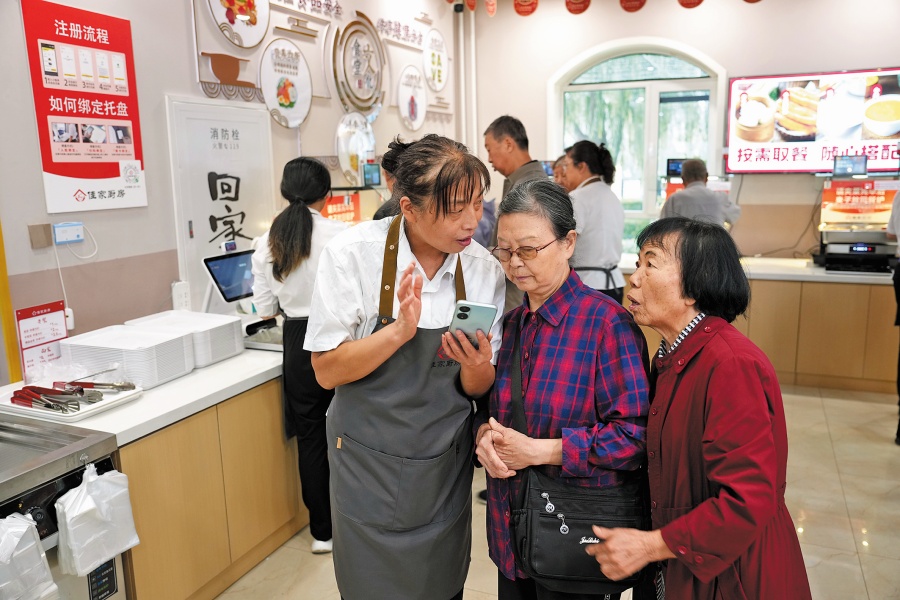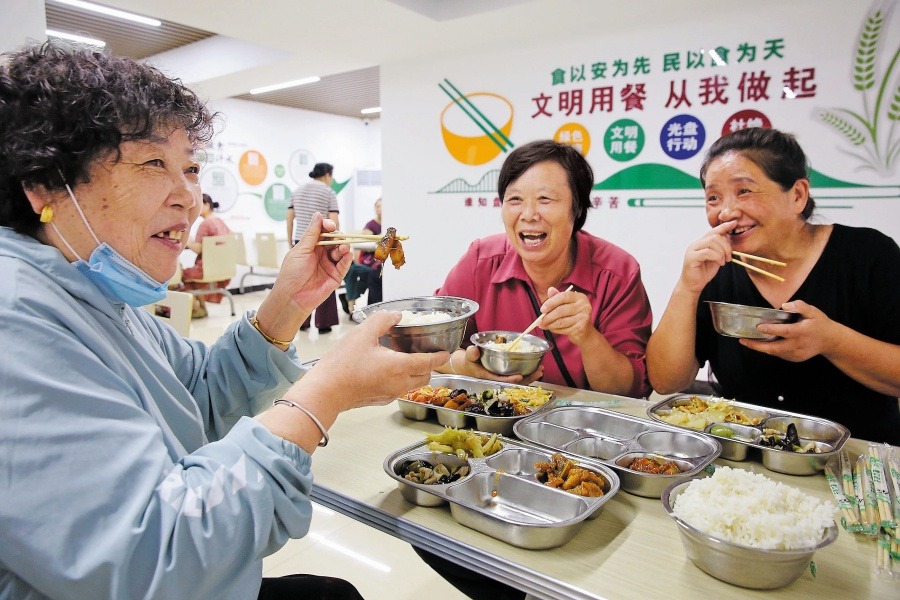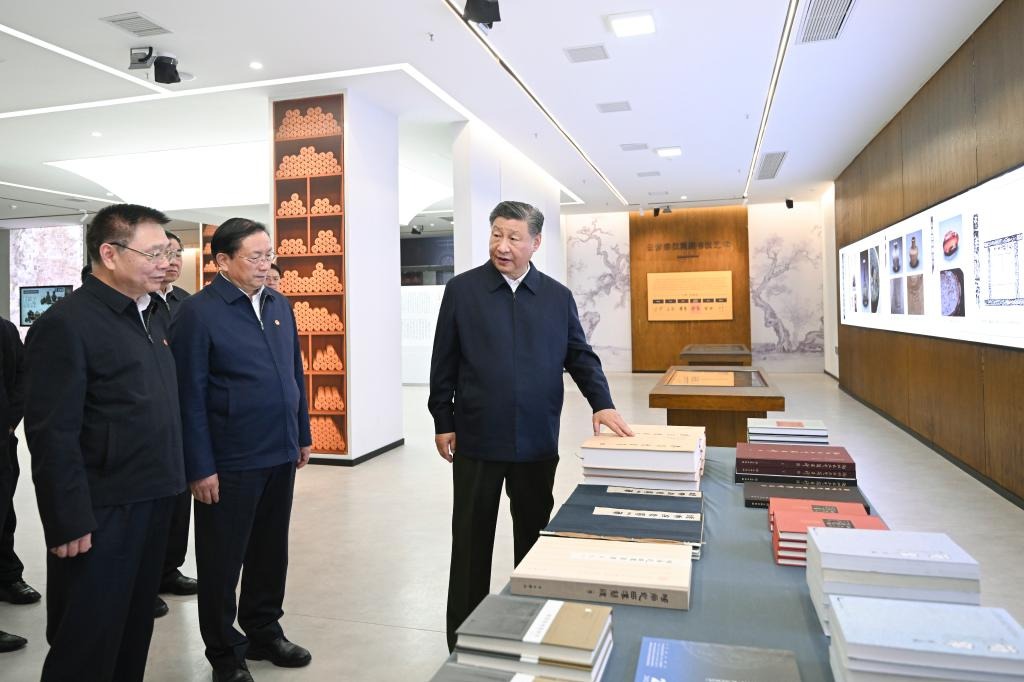Canteens for seniors feed demands of aging population
With support from central government, more dining halls for older people are being established






Chewing over issues
While seniors canteens have won widespread approval, questions have been raised over meal management, inappropriate food choices, overcrowding, and inadequate services, highlighting the need for improvement in some areas.
"In the canteen for the elderly near my home, it is not exclusively open to the elderly," remarked one resident who frequents a community canteen in Shahekou district, Dalian.
"During lunchtime, they simply cannot compete with the younger crowd. Has this 'elderly canteen' lost its original purpose?" the resident asked.
At another meal facility for the elderly in nearby Zhongshan district, several seniors are preparing to leave after circling the venue while young people line up for food.
"The dishes with fried meat, fried chicken, and peanuts are abundant," one of the seniors said. "Our teeth are not in good condition, and we cannot chew them. I don't think such dishes meet the dietary needs of the elderly."
Earlier this year, Dalian announced its key livelihood projects for 2024, which included enhancing basic care services for the elderly in homes and communities.
The work includes a concerted effort to develop meal assistance services for the elderly, with the aim of establishing 100 canteens and meal assistance facilities for seniors throughout the city.
The city already has 78 such facilities, with the total number set to reach 100 by the end of the year, the Dalian Civil Affairs Bureau said.
In response to the issues faced in seniors canteens, a bureau official said some of them will be addressed in upcoming regulations. The official, who chose to remain anonymous, conceded that meal assistance services for the elderly require higher standards of management.
In practical terms, factors that need to be taken into consideration are the size of a community's elderly population, their dietary requirements, and the reach of a designated service area.
Existing catering resources also need to be assessed to see whether they can be used in combination with new facilities, while local conditions, planning and appropriate seating arrangements for elderly diners have to be taken into consideration.
Relevant local departments, such as those overseeing market regulation and civil affairs, should regularly inspect prices, food quality and safety, as well as the use of government subsidies. Representatives of the elderly and other age groups should also be encouraged to inspect the services, and address reasonable demands in a more timely and effective manner.
Wang Changqing, a member of Zhongshan district's political consultative conference, said that innovations should be made in the organizational form, service model, and operational mechanism of elderly meal assistance.
Also, full use should be made of existing service resources, facilities, logistics networks, and information platforms, while balancing the public welfare and commercial aspects of elderly care services.



















